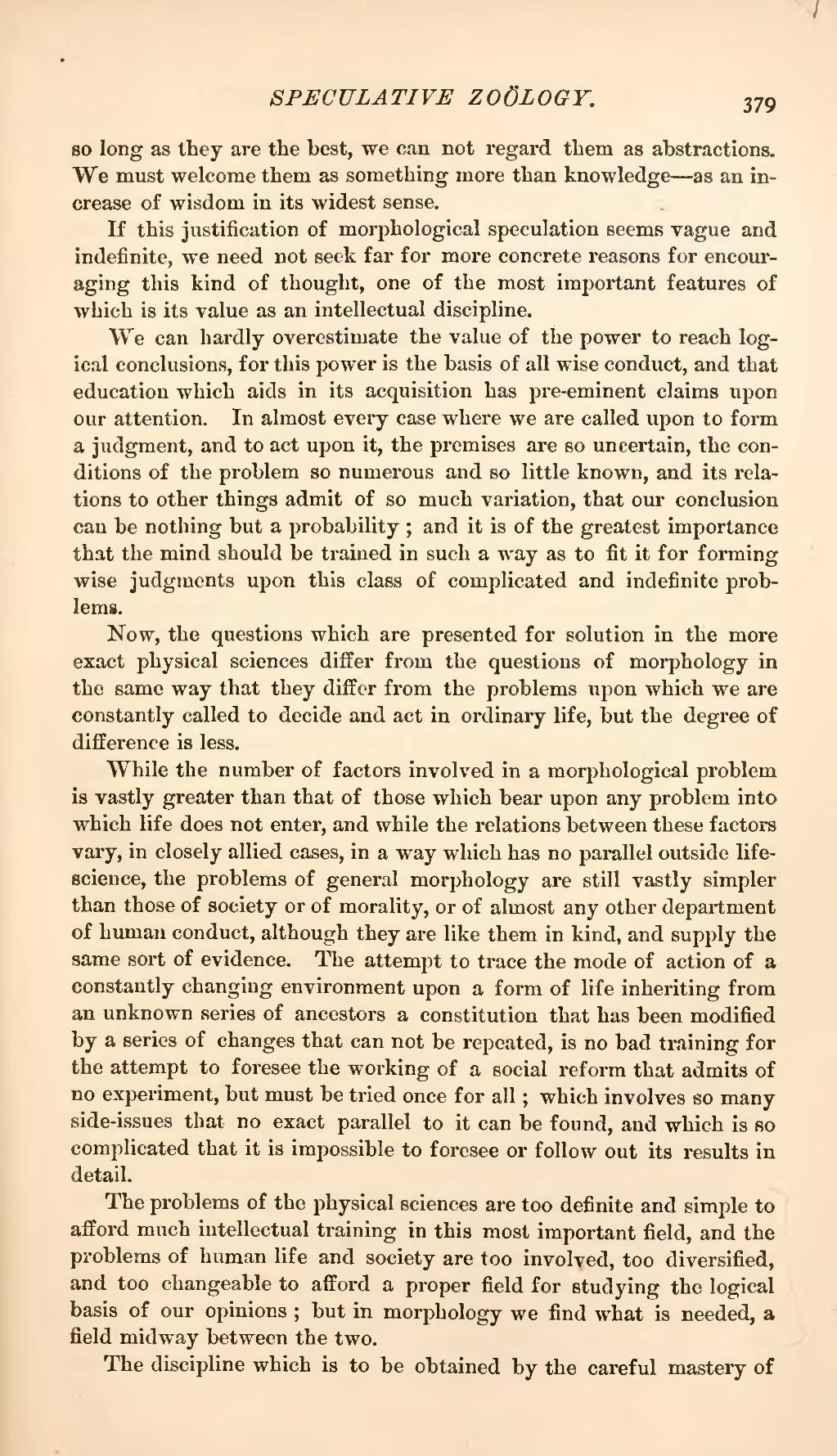so long as they are the best, we can not regard them as abstractions. We must welcome them as something more than knowledge—as an increase of wisdom in its widest sense.
If this justification of morphological speculation seems vague and indefinite, we need not seek far for more concrete reasons for encouraging this kind of thought, one of the most important features of which is its value as an intellectual discipline.
We can hardly overestimate the value of the power to reach logical conclusions, for this power is the basis of all wise conduct, and that education which aids in its acquisition has pre-eminent claims upon our attention. In almost every case where we are called upon to form a judgment, and to act upon it, the premises are so uncertain, the conditions of the problem so numerous and so little known, and its relations to other things admit of so much variation, that our conclusion can be nothing but a probability; and it is of the greatest importance that the mind should be trained in such a way as to fit it for forming wise judgments upon this class of complicated and indefinite problems.
Now, the questions which are presented for solution in the more exact physical sciences differ from the questions of morphology in the same way that they differ from the problems upon which we are constantly called to decide and act in ordinary life, but the degree of difference is less.
While the number of factors involved in a morphological problem is vastly greater than that of those which bear upon any problem into which life does not enter, and while the relations between these factors vary, in closely allied cases, in a way which has no parallel outside life-science, the problems of general morphology are still vastly simpler than those of society or of morality, or of almost any other department of human conduct, although they are like them in kind, and supply the same sort of evidence. The attempt to trace the mode of action of a constantly changing environment upon a form of life inheriting from an unknown series of ancestors a constitution that has been modified by a series of changes that can not be repeated, is no bad training for the attempt to foresee the working of a social reform that admits of no experiment, but must be tried once for all; which involves so many side-issues that no exact parallel to it can be found, and which is so complicated that it is impossible to foresee or follow out its results in detail.
The problems of the physical sciences are too definite and simple to afford much intellectual training in this most important field, and the problems of human life and society are too involved, too diversified, and too changeable to afford a proper field for studying the logical basis of our opinions; but in morphology we find what is needed, a field midway between the two.
The discipline which is to be obtained by the careful mastery of

